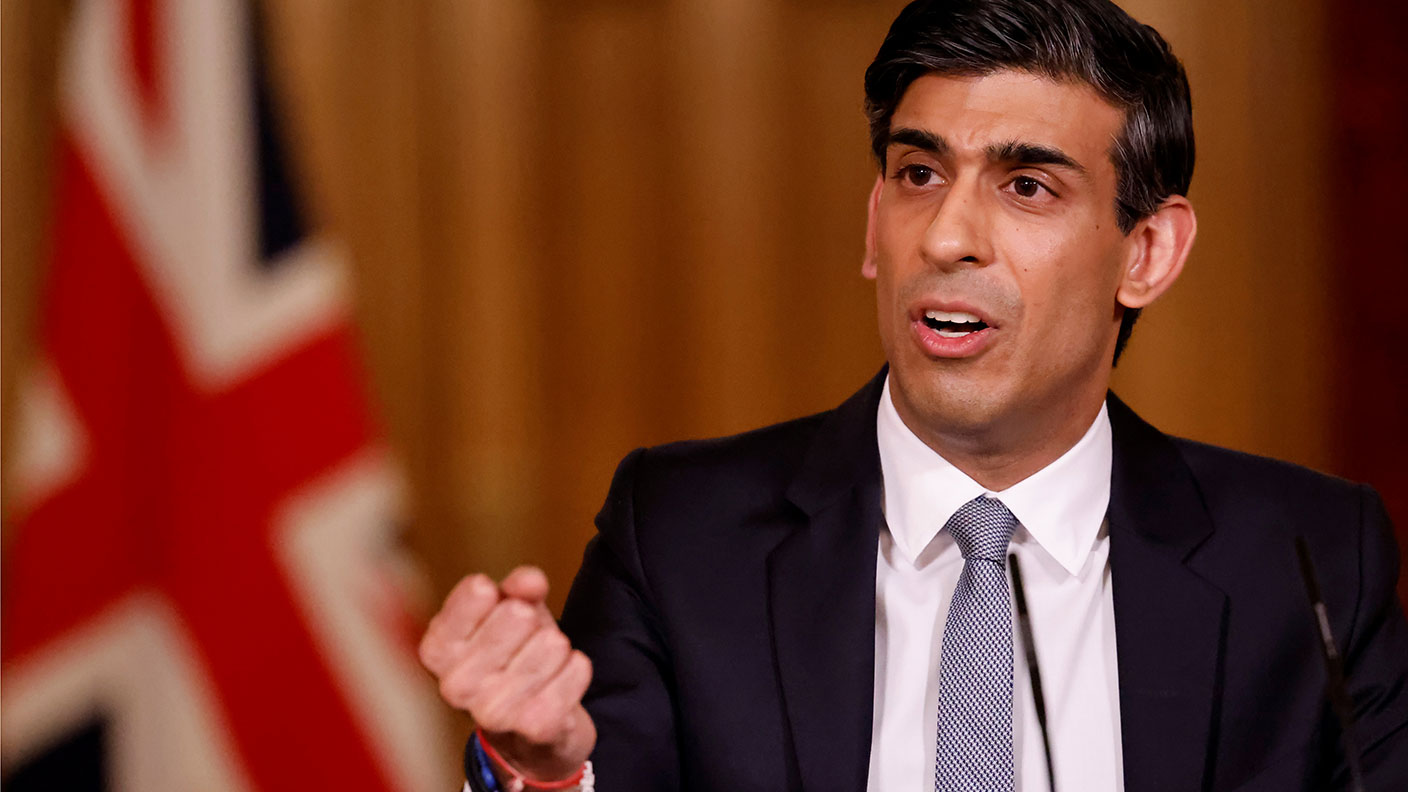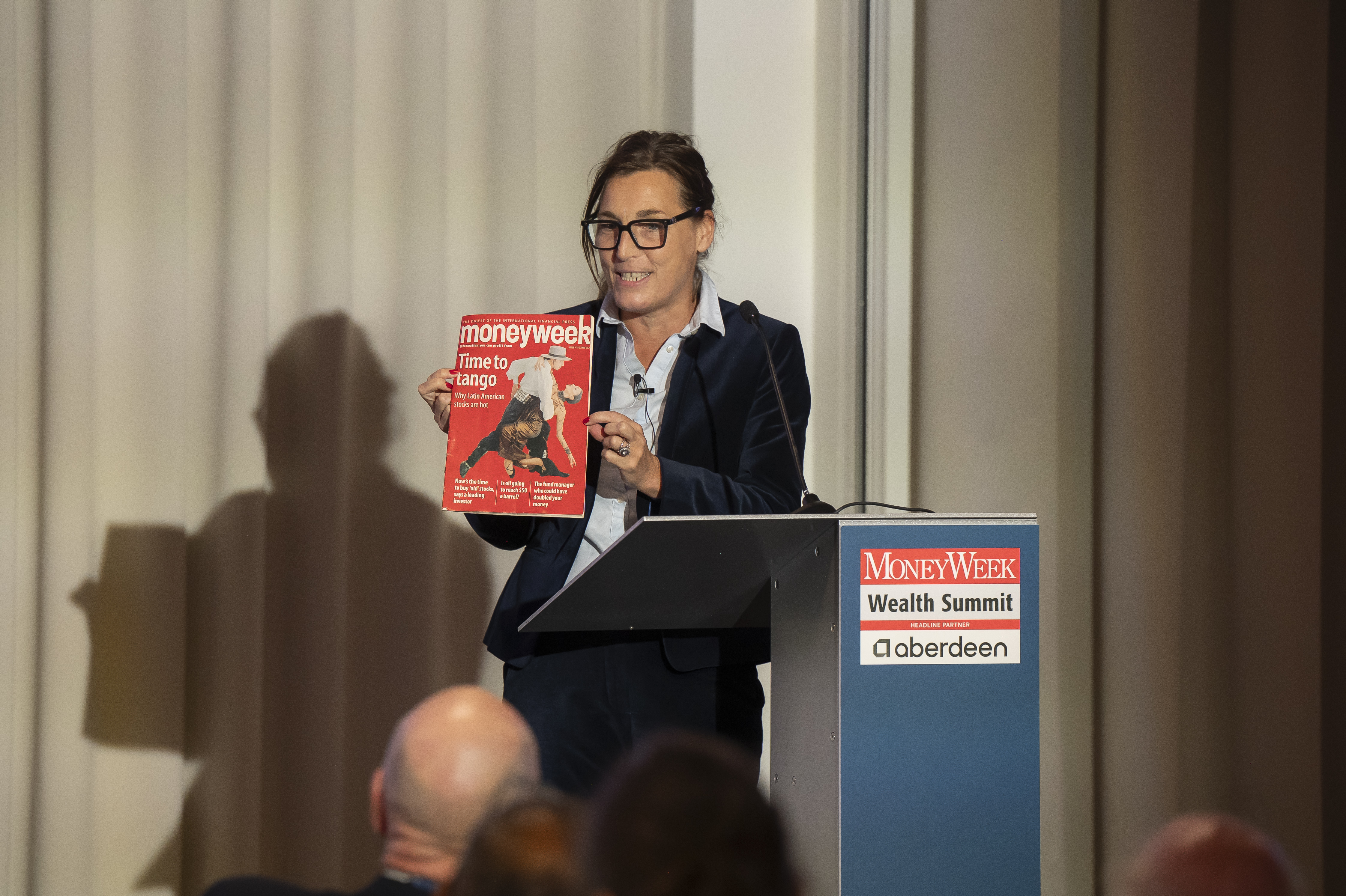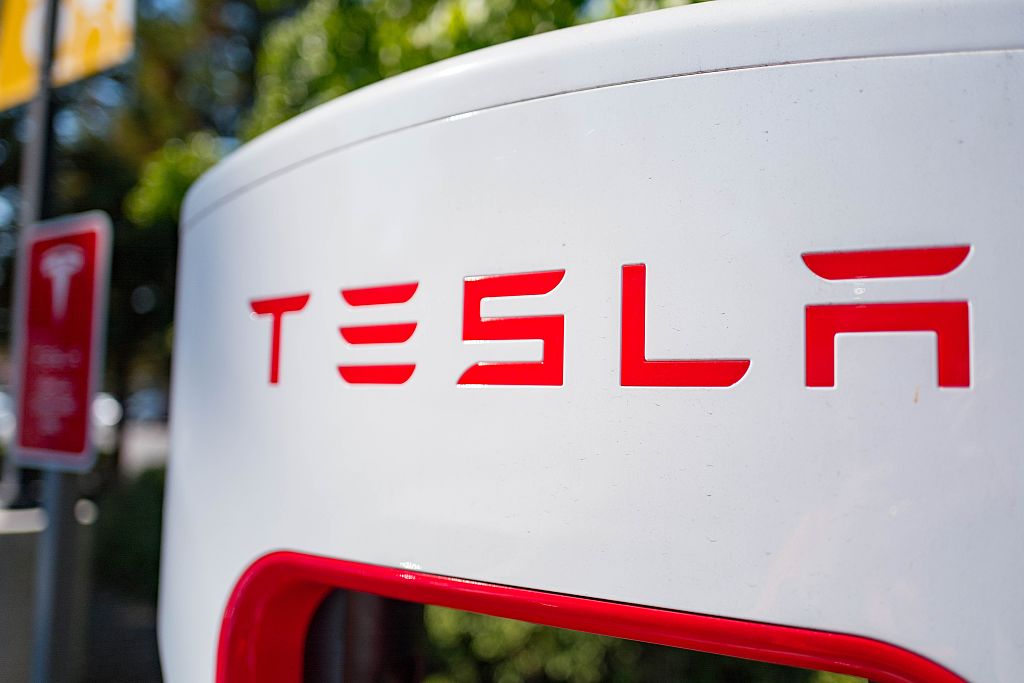What is “Britcoin” and what could it mean for you?
Rishi Sunak has asked the Bank of England to explore the possibility of creating a digital currency for the UK - dubbed Britcoin. Saloni Sardana looks at what that might mean for you.


Get the latest financial news, insights and expert analysis from our award-winning MoneyWeek team, to help you understand what really matters when it comes to your finances.
You are now subscribed
Your newsletter sign-up was successful
Want to add more newsletters?

Twice daily
MoneyWeek
Get the latest financial news, insights and expert analysis from our award-winning MoneyWeek team, to help you understand what really matters when it comes to your finances.

Four times a week
Look After My Bills
Sign up to our free money-saving newsletter, filled with the latest news and expert advice to help you find the best tips and deals for managing your bills. Start saving today!
Central bank digital currencies (CBDCs) received yet another shot in the arm last week after the Bank of England (BoE) and the Treasury launched a taskforce to look into a potential digital currency for Britain, nicknamed “Britcoin”.
The launch comes at a time when many central banks around the world are growing increasingly concerned at the breakneck speed at which cryptocurrencies are growing and being embraced by institutions.
Many Wall Street players and other institutions ranging from Tesla to payments processors like Visa have expressed a desire to allow their clients to invest or accept payments using bitcoin.
MoneyWeek
Subscribe to MoneyWeek today and get your first six magazine issues absolutely FREE

Sign up to Money Morning
Don't miss the latest investment and personal finances news, market analysis, plus money-saving tips with our free twice-daily newsletter
Don't miss the latest investment and personal finances news, market analysis, plus money-saving tips with our free twice-daily newsletter
News of the taskforce also came shortly after Coinbase, America’s largest cryptocurrency exchange, went public earlier this month. So how might Britcoin work and how would it affect you?
What is Britcoin?
Britcoin is in very early stages and no actual decision has been made on whether to introduce the CBDC in the UK. But CBDCs have been on the BoE’s radar for a while. It’s been the topic of several speeches and also a discussion paper published last year.
The latest taskforce will be co-chaired by Jon Cunliffe, the central bank’s deputy governor for financial stability, and Katharine Braddick, the Treasury’s director general of financial services.
CBDCs may be inspired by cryptocurrencies, but in reality they are very different. For one thing, CBDCs will be controlled by central banks. This is the complete opposite to cryptocurrencies, which are decentralised – in other words, they are not backed by any central authority at all, instead by a network of users. Indeed, bitcoin was created in 2009 to bypass the traditional banking system in the wake of the anger felt at the sector in 2008.
So how would a centralised currency work? In the case of Britcoin, the BoE would create e-money tokens in the same way that paper money is created. This would pave the way for people to use Britcoin to buy and sell goods and services, effectively bypassing the middlemen, in this case commercial banks.
The BoE has also launched a CBDC engagement forum to talk to senior “stakeholders” and gain strategic insight into the non-technological aspects of the CBDC, as well as a CBDC Technology Forum to address the technological side of things.
How Britcoin compares to the rest of the world
Yet even with the launch of all the above, the UK lags a number of countries which are already well down the road to creating or releasing their own CBDCs.
The best example is perhaps Bahamas, which launched the world’s first CBDC – the “sand dollar” – last year. It was partly driven by the damage caused by Hurricane Dorian which devastated many bank branches and accelerated the use case for digital currencies.
PWC’s Global CBDC Index 2021 ranked the sand dollar and Cambodia’s CBDC project as first and second-highest in terms of progress. China’s digital yuan, which recently launched several pilot projects and may even be tested by foreign visitors at China’s 2022 Olympics, came third.
China has been exploring its digital yuan since 2014 as the world’s second-largest economy is heavily dependent on electronic payments. While its progress has been welcomed by some, many fear that it represents an extraordinarily powerful tool of social control by an authoritarian government – and also that it might be a step on the road to China taking on the US dollar’s status as reserve currency.
One thing is clear – the major developed nations are taking longer and being more cautious about the embrace of CBDCs. The European Central Bank recently published the findings of a consultation on digital currencies, while the US Federal Reserve is a few years away from developing its “digital dollar”.
Britcoin is likely to cut banks out as the “middleman”
That said, a number of Wall Street banks view virtual currencies as the next big disruptive force, says CNBC. The benefits of CBDCs are obvious – cost and speed are two, particularly for global transactions.
“Seamless cross-border transactions, businesses, and consumers can interact directly with the bank without spending a fortune on different intermediaries,” says Marie Tatibouet, chief marketing officer at cryptocurrency exchange Gate Technology.
Britcoin (and other CBDCs) also make a central bank’s life far easier. For example, rather than quantitative easing (printing money to buy government bonds), central banks could simply credit emergency funds to every individual directly, notes Tatibouet.
However, this would all be bad news for commercial banks. If consumers could hold an account with the central bank (which would then be viewed as the “safest” bank) that would represent an extraordinary level of competition. This is also one reason the BoE has been so keen to emphasise that Britcoin would sit alongside cash and bank deposits, rather than replacing them.
Will the BoE become “Big Brother”?
While Britcoin could have many advantages, the bigger concern is that it would also give the BoE (and therefore the government) the power to act as a “Big Brother” and spy on the financial affairs of its citizens.
Jason Cozens, founder and chief executive of Glint Pay, an online gold investment platform notes: “There is concern around the unprecedented level of data that governments and central banks will hold, as well as to what extent they may implement this level of control over consumers,” he says. “Big Brother is no longer just watching you, it's interfering in your finances.”
If this were to come true, it would have a host of adverse implications far beyond the discomfort of knowing there is surveillance. The government might decide to use this extra insight into people’s financial decisions and spending habits to try to nudge (or force) people to spend and save in a certain way.
Also, confiscatory monetary policy such as negative interest rates could be adopted by the BoE much more easily. If there is no physical cash and the central bank is the only account provider, then there is no alternative for your savings.
These might seem like extreme ideas, but we need only look back as far as 2008 to see that what seems extreme outside of times of crisis (money printing, negative interest rates in other parts of the world) rapidly becomes mainstream and then is never wound back when things calm down again.
As for what it means for decentralised “traditional” cryptos? That entirely depends on how public confidence fares in Britcoin or any CBDC and how central banks market CBDCs. In theory CBDCs are quite different from crypto, and shouldn’t hugely affect the crypto market.
But if governments did start to see CBDCs as the future, it’s hard to see them being keen on competition from other “independent” currencies – after all, history shows that the authorities rarely like to cede control over the financial printing press.
If you’d like to know more about bitcoin and cryptocurrrencies, you can get a free beginner’s guide to the cryptocurrency when you subscribe to MoneyWeek magazine. Find out more here.
Get the latest financial news, insights and expert analysis from our award-winning MoneyWeek team, to help you understand what really matters when it comes to your finances.
Saloni is a web writer for MoneyWeek focusing on personal finance and global financial markets. Her work has appeared in FTAdviser (part of the Financial Times), Business Insider and City A.M, among other publications. She holds a masters in international journalism from City, University of London.
Follow her on Twitter at @sardana_saloni
-
 Should you buy an active ETF?
Should you buy an active ETF?ETFs are often mischaracterised as passive products, but they can be a convenient way to add active management to your portfolio
-
 Power up your pension before 5 April – easy ways to save before the tax year end
Power up your pension before 5 April – easy ways to save before the tax year endWith the end of the tax year looming, pension savers currently have a window to review and maximise what’s going into their retirement funds – we look at how
-
 Why Scotland's proposed government bonds are a terrible investment
Why Scotland's proposed government bonds are a terrible investmentOpinion Politicians in Scotland pushing for “kilts” think it will strengthen the case for independence and boost financial credibility. It's more likely to backfire
-
 Key lessons from the MoneyWeek Wealth Summit 2025: focus on safety, value and growth
Key lessons from the MoneyWeek Wealth Summit 2025: focus on safety, value and growthOur annual MoneyWeek Wealth Summit featured a wide array of experts and ideas, and celebrated 25 years of MoneyWeek
-
 How have central banks evolved in the last century – and are they still fit for purpose?
How have central banks evolved in the last century – and are they still fit for purpose?The rise to power and dominance of the central banks has been a key theme in MoneyWeek in its 25 years. Has their rule been benign?
-
 The Stella Show is still on the road – can Stella Li keep it that way?
The Stella Show is still on the road – can Stella Li keep it that way?Stella Li is the globe-trotting ambassador for Chinese electric-car company BYD, which has grown into a world leader. Can she keep the motor running?
-
 Buying vs renting: is is better to own or rent your home?
Buying vs renting: is is better to own or rent your home?The higher mortgage rates of recent years have actually made renting comparatively cheaper, analysis suggests. But there are hidden costs to long term renting.
-
 Is Britain heading for a big debt crisis?
Is Britain heading for a big debt crisis?Opinion Things are not yet as bad as some reports have claimed. But they sure aren’t rosy either, says Julian Jessop
-
 Why investors can no longer trust traditional statistical indicators
Why investors can no longer trust traditional statistical indicatorsOpinion The statistical indicators and data investors have relied on for decades are no longer fit for purpose. It's time to move on, says Helen Thomas
-
 Tesla seeks approval to supply electricity to UK homes – could it disrupt the energy market?
Tesla seeks approval to supply electricity to UK homes – could it disrupt the energy market?Tesla has applied for a license to supply UK households with electricity, but taking on the biggest providers could prove challenging
